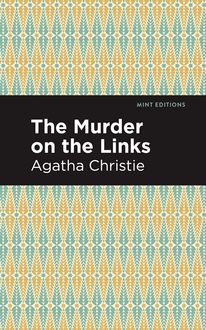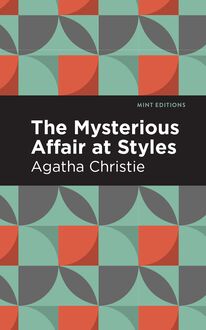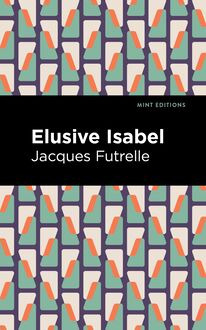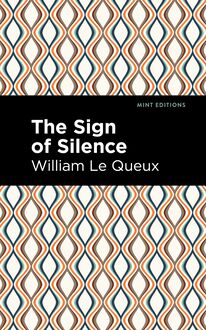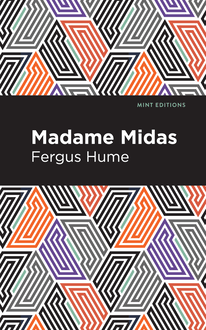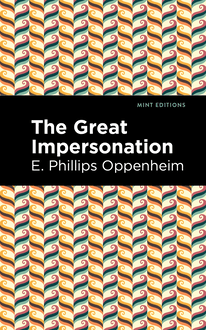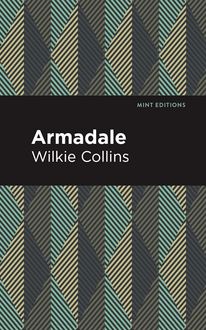-
 Univers
Univers
-
 Ebooks
Ebooks
-
 Livres audio
Livres audio
-
 Presse
Presse
-
 Podcasts
Podcasts
-
 BD
BD
-
 Documents
Documents
-
- Cours
- Révisions
- Ressources pédagogiques
- Sciences de l’éducation
- Manuels scolaires
- Langues
- Travaux de classe
- Annales de BEP
- Etudes supérieures
- Maternelle et primaire
- Fiches de lecture
- Orientation scolaire
- Méthodologie
- Corrigés de devoir
- Annales d’examens et concours
- Annales du bac
- Annales du brevet
- Rapports de stage
La lecture à portée de main
Vous pourrez modifier la taille du texte de cet ouvrage
Découvre YouScribe en t'inscrivant gratuitement
Je m'inscrisDécouvre YouScribe en t'inscrivant gratuitement
Je m'inscrisEn savoir plus
Vous pourrez modifier la taille du texte de cet ouvrage
En savoir plus

Description
Alfred Burton’s entire life and demeanor changes when he eats fruit from a plant that suddenly compels him to speak and see the truth. Regardless of intent, his change of heart has a devastating effect on his personal and professional relationships. Alfred is a sly and charismatic auctioneer’s clerk, who uses embellishments and half-truths to maintain his job. One day he comes across a random plant in an old house and eats some of its fruit. Once ingested, it has a dramatic physical and mental effect. Alfred can suddenly see the world through a clear, unfiltered lens. His interests drastically change. He alters his appearance. His speech is more direct and sincere. Yet, things that he once loved, now repulse him--including his family. The Double Life of Mr. Alfred Burton has an intriguing premise that tests the limits of morality. It explores the concept of brutal honesty and how it can be just as damaging as deceit. E. Phillips Oppenheim provides a unique plot device that forces the character and reader to face this dilemma. With an eye-catching new cover, and professionally typeset manuscript, this edition of The Double Life of Mr. Alfred Burton is both modern and readable.
Sujets
Informations
| Publié par | Mint Editions |
| Date de parution | 14 mai 2021 |
| Nombre de lectures | 0 |
| EAN13 | 9781513286280 |
| Langue | English |
| Poids de l'ouvrage | 1 Mo |
Informations légales : prix de location à la page 0,0500€. Cette information est donnée uniquement à titre indicatif conformément à la législation en vigueur.
Extrait
The Double Life of Mr. Alfred Burton
E. Phillips Oppenheim
The Double Life of Mr. Alfred Burton was first published in 1913.
This edition published by Mint Editions 2021.
ISBN 9781513281261 | E-ISBN 9781513286280
Published by Mint Editions®
minteditionsbooks.com
Publishing Director: Jennifer Newens
Design & Production: Rachel Lopez Metzger
Project Manager: Micaela Clark
Typesetting: Westchester Publishing Services
C ONTENTS I. T HE F RUIT OF THE T REE II. A T RANSFORMATION III. M R . A LFRED B URTON ’ S F AMILY IV. A S HOCK TO M R . W ADDINGTON V. B URTON ’ S N EW L IFE VI. A M EETING WITH E LLEN VII. T HE T RUTHFUL A UCTIONEER VIII. H ESITATION IX. T HE L AND OF E NCHANTMENT X. N O R ECONCILIATION XI. T HE G ATE INTO P ARADISE XII. A B OLT FROM THE B LUE XIII. P ROOF P OSITIVE XIV. T HE L EGEND OF THE P ERFECT F OOD XV. T HE P ROFESSOR I NSISTS XVI. E NTER M R . B OMFORD ! XVII. B URTON D ECLINES XVIII. T HE E ND OF A D REAM XIX. A B AD H ALF -H OUR XX. A NOTHER C OMPLICATION XXI. A N A MAZING T RANSFORMATION XXII. D OUBTS XXIII. C ONDEMNED ! XXIV. M ENATOGEN , THE M IND F OOD XXV. D ISCONTENT XXVI. T HE E ND OF A W ONDERFUL W ORLD XXVII. M R . W ADDINGTON A LSO XXVIII. T HE R EAL A LFRED B URTON XXIX. R ICHES AND R EPENTANCE XXX. A M AN ’ S S OUL
I
T HE F RUIT OF THE T REE
Mr. Alfred Burton, although he was blissfully and completely ignorant of the fact, stood at the door of Fate. He was a little out of breath and his silk hat was reclining at the back of his head. In his mouth was a large cigar which he felt certain was going to disagree with him, but he smoked it because it had been presented to him a few minutes ago by the client upon whom he was in attendance. He had rather deep-set blue eyes, which might have been attractive but for a certain keenness in their outlook, which was in a sense indicative of the methods and character of the young man himself; a pale, characterless face, a straggling, sandy moustache, and an earnest, not to say convincing, manner. He was dressed in such garments as the head-clerk of Messrs. Waddington & Forbes, third-rate auctioneers and house agents, might have been expected to select. He dangled a bunch of keys in his hand.
“If this house don’t suit you, sir,” he declared, confidently, “why, there isn’t one in the whole west-end that will. That’s my opinion, anyway. There’s nothing in our books to compare with it for value and accommodation. We nearly let it last week to Lord Leconside, but Her Ladyship—she came round with me herself—decided that it was just a trifle too large. As a matter of fact, sir,” this energetic young man went on, confidentially, “the governor insisted upon a deposit and it didn’t seem to be exactly convenient. It isn’t always these people with titles who’ve got the money. That we find out in our business, sir, as quickly as anybody. As for the steam heating you were talking about, Mr. Lynn, why, that’s all very well for New York,” he continued, persuasively, “but over here the climate doesn’t call for it—you can take it from me that it doesn’t, indeed, Mr. Lynn. I have the letting in my hands of as many houses as most people, and you can take it from me, sir, as the direct result of my experience, that over here they won’t have it—won’t have it at any price, sir. Most unhealthy we find it, and always produces a rare crop of colds and coughs unknown to those that are used to an honest coal fire. It’s all a matter of climate, sir, after all, isn’t it?”
The young man paused to take breath. His client, who had been listening attentively in gloomy but not unappreciative silence, removed his cigar from his mouth. He was a middle-aged American with a wife and daughters on their way over from New York, and his business was to take a house before they arrived. It wasn’t a job he liked, but he was making the best of it. This young man appealed to his sense of business.
“Say,” he remarked, approvingly, “you’ve learned how to talk in your trade!”
Stimulated by this encouragement, Alfred Burton clapped on his hat a little more securely, took a long breath, and went at it again.
“Why, I’m giving myself a rest this morning, sir!” he declared. “I haven’t troubled to tell you more than the bare facts. This house doesn’t need any talking about—doesn’t need a word said about it. Her Ladyship’s last words to us were—Lady Idlemay, you know, the owner of the house—‘Mr. Waddington and Mr. Burton,’ she said—she was speaking to us both, for the governor always introduces me to clients as being the one who does most of the letting,—‘Mr. Waddington and Mr. Burton,’ she said, ‘if a tenant comes along whom you think I’d like to have living in my rooms and using my furniture, breathing my air, so to speak, why, go ahead and let the house, rents being shockingly low just now, with agricultural depression and what not, but sooner than not let it to gentlepeople, I’ll do without the money,’ Her Ladyship declared. Now you’re just the sort of tenant she’d like to have here. I’m quite sure of that, Mr. Lynn. I should take a pleasure in bringing you two together.”
Mr. Lynn grunted. He was perfectly well aware that the house would seem more desirable to his wife and daughters from the very fact that it belonged to a “Lady” anybody. He was perfectly well aware, also, that his companion had suspected this. The consideration of these facts left him, however, unaffected. He was disposed, if anything, to admire the cleverness of the young man who had realized an outside asset.
“Well, I’ve seen pretty well all over it,” he remarked. “I’ll go back to the office with you, anyhow, and have a word with Mr. Waddington. By the way, what’s that room behind you?”
The young man glanced carelessly around at the door of the room of Fate and down at the bunch of keys which he held in his hand. He even chuckled as he replied.
“I was going to mention the matter of that room, sir,” he replied, “because, if perfectly agreeable to the tenant, Her Ladyship would like to keep it locked up.”
“Locked up?” Mr. Lynn repeated. “And why?”
“Regular queer story, sir,” the young man declared, confidentially. “The late Earl was a great traveller in the East, as you may have heard, and he was always poking about in some ruined city or other in the desert, and picking up things and making discoveries. Well, last time he came home from abroad, he brought with him an old Egyptian or Arab,—I don’t know which he was, but he was brown,—settled him down in this room—in his own house, mind—and wouldn’t have him disturbed or interfered with, not at any price. Well, the old chap worked here night and day at some sort of writing, and then, naturally enough, what with not having the sort of grub he liked, and never going outside the doors, he croaked.”
“He what?” Mr. Lynn interposed.
“He died,” the young man explained. “It was just about the time that the Earl was ill himself. His Lordship gave orders that the body was to be buried and the room locked up, in case the old chap’s heirs should come along. Seems he’d brought a few odd things of his own over—nothing whatever of any value. Anyway, those were Lord Idlemay’s wishes, and the room has been locked up ever since.”
Mr. Lynn was interested.
“No objection to our just looking inside, I suppose?”
“None whatever,” the young man declared, promptly. “I was going to have a peep myself. Here goes!”
He fitted the key in the lock and pushed the door open. Mr. Lynn took one step forward and drew back hurriedly.
“Thanks!” he said. “That’ll do! I’ve seen all I want—and smelt!”
Mr. Alfred Burton, fortunately or unfortunately, was possessed of less sensitive nasal organs and an indomitable curiosity. The room was dark and stuffy, and a wave of pungent odor swept out upon them with the opening of the door. Nevertheless, he did not immediately close it.
“One moment!” he muttered, peering inside. “I’ll just look around and see that everything is in order.”
He crossed the threshold and passed into the room. It was certainly a curious apartment. The walls were hung not with paper at all, but with rugs of some Oriental material which had the effect of still further increasing the gloom. There were neither chairs nor tables—no furniture at all, in fact, of any account but in the furthest corner was a great pile of cushions, and on the floor by the side a plain strip of sandalwood, covered with a purple cloth, on which were several square-shaped sheets of paper, a brass inkstand, and a bundle of quill pens. On the extreme corner of this strip of wood, which seemed to have been used as a writing desk by some one reclining upon the cushions, was the strangest article of all. Alfred Burton stared at it with wide-open eyes. It was a tiny plant growing out of a small-sized flower-pot, with real green leaves and a cluster of queer little brown fruit hanging down from among them.
“Jiminy!” the clerk exclaimed. “I say, Mr. Lynn, sir!”
But Mr. Lynn had gone off to pace the dining-room once more. Burton moved slowly forward and stooped down over the cushions. He took up the sheets of paper which lay upon the slab of sandalwood. They were covered with wholly indecipherable characters save for the last page only, and there, even as he stood with it in his fingers, he saw, underneath the concluding paragraph of those unintelligible hieroglyphics, a few words of faintly traced English, laboriously printed, probably a translation. He struck a match and read them slowly out to himself:
“I T IS FINISHED . T HE NINETEENTH generation has triumphed. He who shall eat of the brown fruit of this tree shall see the things of Life and Death as they are. He who shall eat—” The translation concluded abruptly. Mr. Alfred Burton removed his silk hat and reflectively scratched his head.
“Queer sort of joker he must have been,” he remarked to himself. “I wonder what he was getting at?”
His eyes fell upon the little tree. He felt the earth in the pot it was quite dry. Yet the
-
 Univers
Univers
-
 Ebooks
Ebooks
-
 Livres audio
Livres audio
-
 Presse
Presse
-
 Podcasts
Podcasts
-
 BD
BD
-
 Documents
Documents
-
Jeunesse
-
Littérature
-
Ressources professionnelles
-
Santé et bien-être
-
Savoirs
-
Education
-
Loisirs et hobbies
-
Art, musique et cinéma
-
Actualité et débat de société
-
Jeunesse
-
Littérature
-
Ressources professionnelles
-
Santé et bien-être
-
Savoirs
-
Education
-
Loisirs et hobbies
-
Art, musique et cinéma
-
Actualité et débat de société
-
Actualités
-
Lifestyle
-
Presse jeunesse
-
Presse professionnelle
-
Pratique
-
Presse sportive
-
Presse internationale
-
Culture & Médias
-
Action et Aventures
-
Science-fiction et Fantasy
-
Société
-
Jeunesse
-
Littérature
-
Ressources professionnelles
-
Santé et bien-être
-
Savoirs
-
Education
-
Loisirs et hobbies
-
Art, musique et cinéma
-
Actualité et débat de société
- Cours
- Révisions
- Ressources pédagogiques
- Sciences de l’éducation
- Manuels scolaires
- Langues
- Travaux de classe
- Annales de BEP
- Etudes supérieures
- Maternelle et primaire
- Fiches de lecture
- Orientation scolaire
- Méthodologie
- Corrigés de devoir
- Annales d’examens et concours
- Annales du bac
- Annales du brevet
- Rapports de stage

